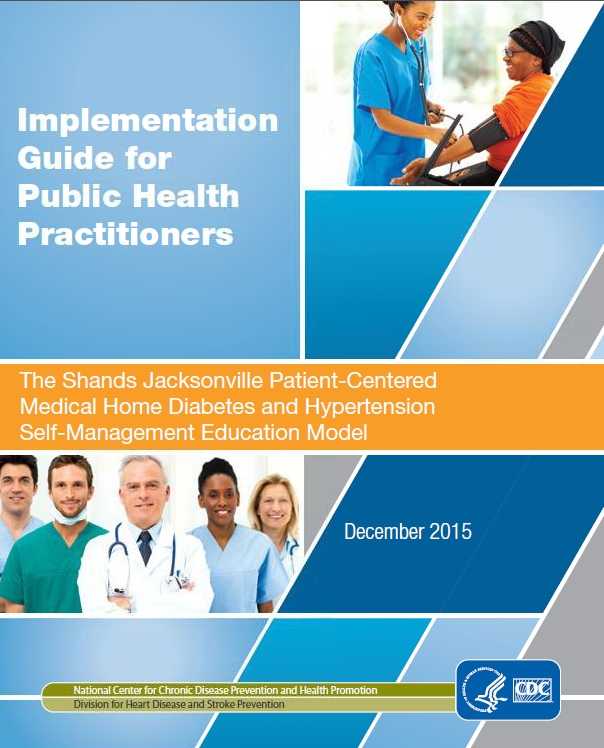Evaluation Spotlights & Strategies
The examples on this page highlight the work that CDC grantees are doing across the nation as well as other promising practices that grantees may incorporate into their programs.
Field Notes
Every day, we see examples of different approaches used in the field by colleagues working at the state, local, and community levels. With Field Notes, we can share some of these efforts from across the nation.
Please let us know whether there are specific types of efforts or activities you would like to see highlighted. Keep in mind that to provide you with timely examples, levels of evidence may differ for the example strategies.
- Clinical-Community Health Worker Initiative [PDF-246K] The Mississippi Delta Health Collaborative, an initiative of the Mississippi State Department of Health, provides leadership and guidance in the Mississippi Delta to improve the cardiovascular health of the population through the promotion of the ABCS (Aspirin use when appropriate, Blood pressure control, Cholesterol management, and Smoking cessation).
- Colorado Heart Healthy Solutions Program [PDF-479K] To address growing rates of high blood pressure, elevated cholesterol, and other risk factors related to cardiovascular diseases in Colorado, the program helps people navigate community health systems.
- Colorado Heart Smart Navigation Program [PDF-227K] Patient navigators work with patients and community organizations to help manage blood pressure and other related conditions.
- DC Million Hearts Program [PDF-3.3M] The program brought together public and private organizations to reduce heart disease deaths in the Washington, D.C., area.
- Delta Alliance for Congregational Health [PDF-298K] A coalition of more than 25 churches in the Mississippi Delta work to reduce the risk of heart disease and help congregation and community members access health care.
- Georgia West End Medical Centers Patient-Centered Hypertension Management [PDF-325K]
To help control hypertension among patients, West End Medical Centers, Inc., implemented Patient-Centered Medical Home-supported activities. - Kaiser Permanente Colorado Hypertension Management Program [PDF-598K]
This hypertension management system uses electronic medical records (EMR) and team-based care to provide effective care to patients with high blood pressure and other conditions. - Jacksonville Urban Disparity Institute Diabetes Rapid Access Program [PDF-306K] The Diabetes Rapid Access Program (D-RAP) aims to remove barriers to care and provide patients with the tools needed to successfully manage diabetes and hypertension.
- Maryland Learning Collaborative [PDF-495K] The Maryland Department of Health and Mental Hygiene’s Center for Chronic Disease Prevention and Control and the Maryland Learning Collaborative developed a public health and clinical care partnership to improve state-level chronic disease outcomes, support quality improvement within health care settings, and advance primary care across the state.
- Michigan Improving Performance in Practice [PDF-413K]
Improving Performance in Practice has connected more than 35 medical practices with experts who provide coaching on techniques for improving quality of care and reducing costs. - Mississippi Delta Cardiovascular Health Examination Survey [PDF-320K] This survey describes health behaviors and heart disease risk factors. Before 2011, no local-level surveillance of cardiovascular disease trends was available in the Mississippi Delta Region.
- North Dakota MediQHome of Blue Cross Blue Shield [PDF-320K] MediQHome helps improve quality of care through collaborative decision making, coordination of patient care, and use of a clinical information management system.
- Palmetto Primary Care Physicians Patient-Centered Medical Home [PDF-311K] The patient-centered medical home model includes patient care coordinators who help ensure that high-risk individuals receive patient-focused care.
- Pharmacy Cardiovascular Risk Reduction Project [PDF-459K] This project aims to improve patient care and health outcomes in the Mississippi Delta region by using medication therapy management approaches.
- Residency Program Collaborative and Community Health Center Collaborative in Pennsylvania [PDF-304K]
This statewide program aims to enhance patient care at medical residency program sites and community health centers by using the patient-centered medical home and chronic care models. - St. Johnsbury, Vermont Community Health Team [PDF-656K] The St. Johnsbury Vermont Community Health Team (CHT) Model includes an integrated group of multidisciplinary practitioners, including community health workers (CHWs), that address the spectrum of medical and nonmedical needs of patients with chronic disease conditions.
Program Spotlights
WISEWOMAN Briefs
WISEWOMAN briefs provide guidance and resources for managers of WISEWOMAN programs.
Indicator Spotlights
Indicator spotlights give funded programs a list of potential indicators to explore for planning and evaluation.
Implementation Guides for Public Health Practitioners
The implementation guides describe key lessons learned from evaluations of selected models.
- The Shands Jacksonville Patient-Centered Medical Home Diabetes and Hypertension Self-Management Education Model [PDF-1.9M]
The purpose of this implementation guide is to describe key lessons learned from the evaluation of the Diabetes and Hypertension Self-Management Education (DHSME) model implemented within the Shands Jacksonville Patient-Centered Medical Home (PCMH). This guide is intended for public health practitioners who are interested in implementing chronic disease self-management education models that reduce or remove barriers to healthcare while also strengthening community-clinical linkages. - The St. Johnsbury Community Health Team Model [PDF1.7M] The purpose of this implementation guide is to describe key lessons learned from the evaluation of the St. Johnsbury Vermont Community Health Team (CHT) Model. This document is intended for public health practitioners who are interested in implementing a public health approach that is both a multidisciplinary coordinated team effort and promotes community-clinical linkages within their communities.
- The Residency Program Collaborative and Community Health Center Collaborative [PDF-2.2M] The purpose of this implementation guide is to describe key lessons learned from the evaluation of the Pennsylvania Academy of Family Physicians’ Residency Program Collaborative and Community Health Center Collaborative. This document is intended for public health practitioners who are interested in using a quality improvement learning collaborative model to better understand how to implement this approach within their communities.
- Page last reviewed: May 31, 2017
- Page last updated: May 31, 2017
- Content source:



 ShareCompartir
ShareCompartir
